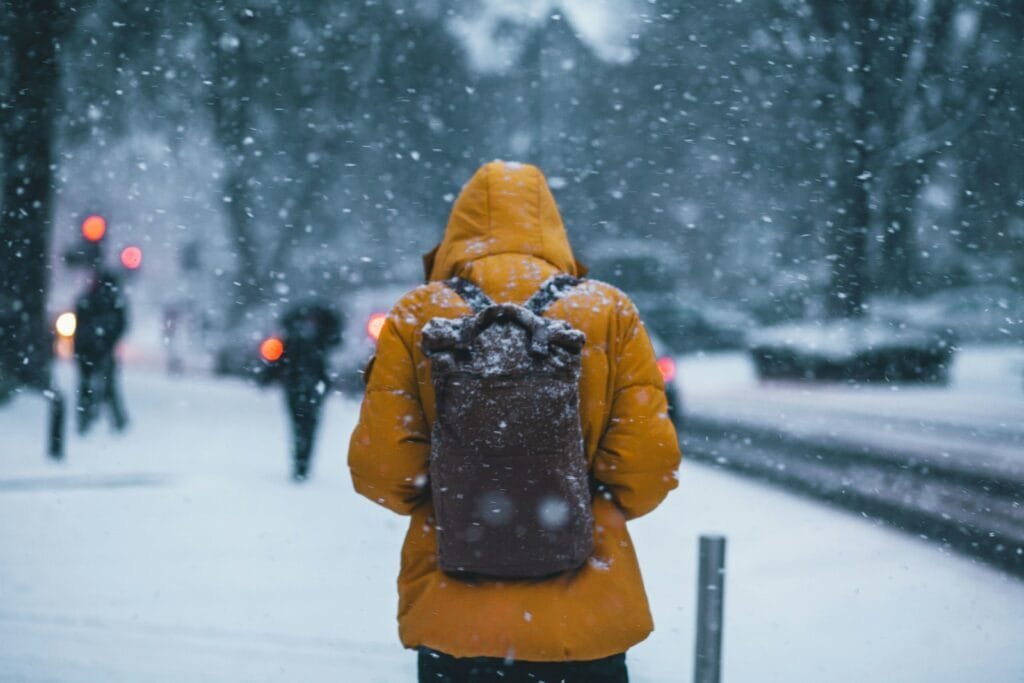cold
When the temperature goes down, it gets cold. Brrrrr!
- A: How cold is it outside?
- B: It’s below freezing!
- A: Do you like it when it gets cold in the winter?
- B: Yes, but not too cold.
- A: How cold does it get. here?
- B: Very cold!

It’s cold outside.
a. Use "cold" as an adjective.
The word “cold” is a very common adjective for situations in which something is at a low temperature or losing heat:
- It gets cold in October.
- By December, it’s very cold.
- Sarah says she can’t imagine living anywhere that’s not cold in the winter.
- She loves cold weather.
- Keep things cold by storing them in the refrigerator.
- The freezer keeps things ice cold.
- If you don’t eat hot food fast enough, it will be get cold.
- Nothing tastes better on a hot day than cold lemonade.
a. Use "cold" as an adjective.

- Snow falls when it gets cold outside.

- A refrigerator keeps things cold.
b. Use "cold" as a noun.
When used as a noun, “cold” refers to weather.
- People who live in the north must know how to deal with the cold.
- School was cancelled yesterday due to the cold.
- The cold kills off mosquitoes and other insects in the fall.
A cold is also a type of temporary, mild illness.
- I think I’m getting a cold.
- Denise has a cold, so she’s staying home from school today.
- Are you coming down with a cold?
- What are some effective remedies for a cold?
- Bernie’s cold lasted for about five days.
b. Use "cold" as a noun.

- Dealing with the cold is a part of life in northern climates.
Notice in this example that an article (the) comes before “cold.”

- Stephanie is battling a cold. (battle = fight)
- What do you usually do when you have a cold?
c. other uses for "cold"
A cold person is someone who is uncaring or won’t show his or her feelings in situations that might require compassion or a human, emotional response.
- Why is she so cold?
- Over the years, she has grown cold.
- George’s cold response to the crime sent shivers up our spines.
- That was cold! (The person did something mean or uncaring.)
- The teacher seemed cold and distant.
- Cold-blooded murderers are usually sent to prison for life.
You can also use “cold” when there’s not enough preparation:
- Sales jobs that require cold calling may involve a lot of rejection. (cold call = contact a potential customer without prior notice)
- You’re going to have to go into that meeting cold. (cold = no preparation)
c. other uses for "cold"

- She has become cold and distant.

- She knocked him out cold. (The word “cold” is often used when a person is hit or incapacitated by a situation.)
- He’s out cold. (He isn’t moving.)
